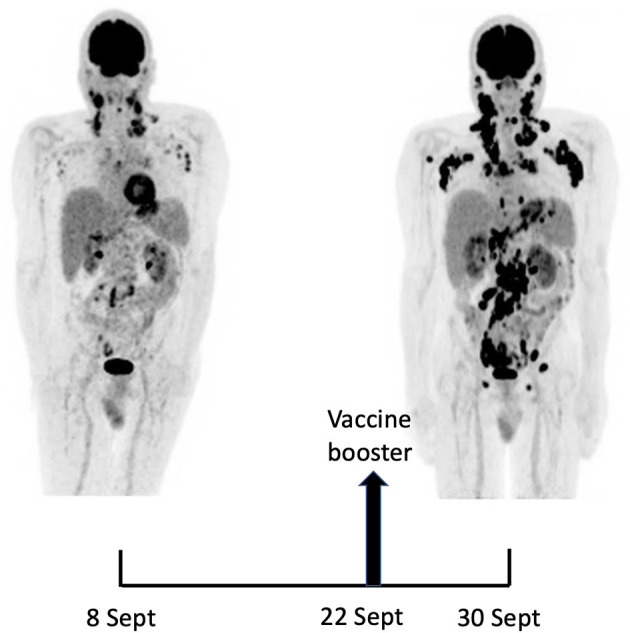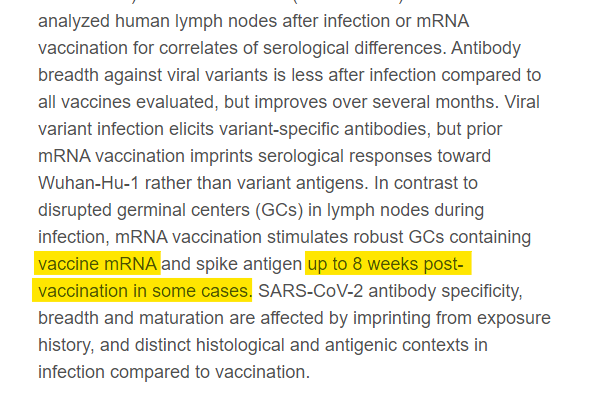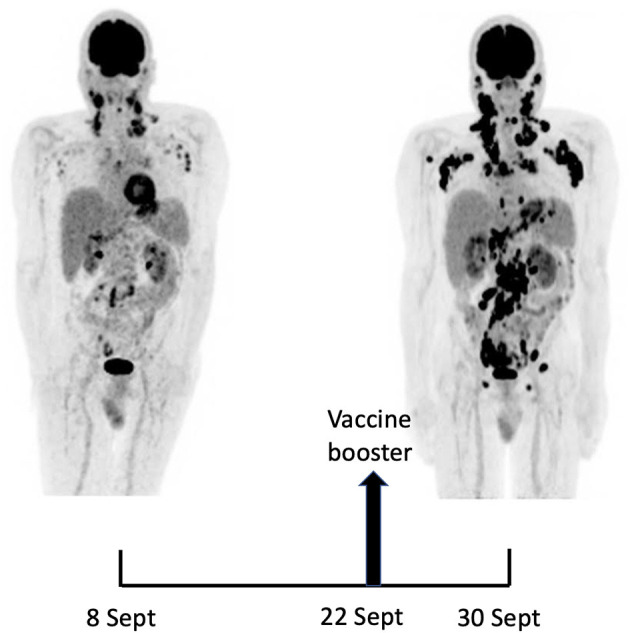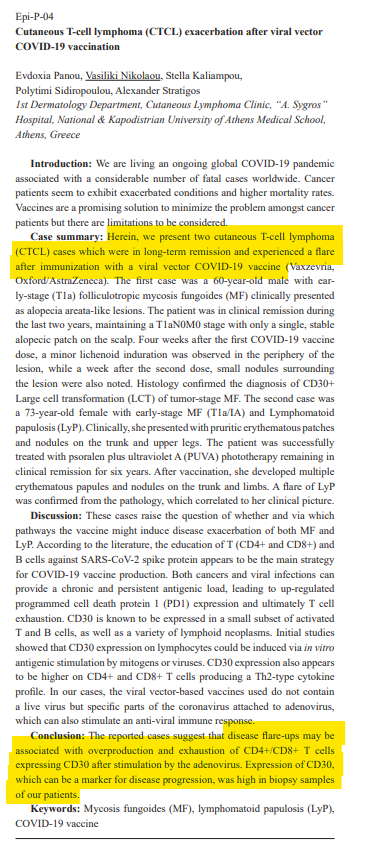 image.png
image.png
Alarming — risk of widespread cancer in mRNA-injected individuals
It was not previously known whether mRNA from these injections continue producing spike protein. It is confirmed now, and we have the preprint that shows it. Since the spike protein is known for wrecking the immune system's anti-cancer work... connect the dots.

The source for this content is a Nitter thread, although the entire thread is thoroughly scientifically sourced from papers.
60 days. SIXTY DAYS [ed.: the mRNA injections continue to produce the spike proteins in the human body for at least this long]. And that was when they [ed: the researchers] stopped looking... That is how long these researchers were still detecting *mRNA* in lymph nodes. Whoever told you "it degrades in hours to days" lied, because they didn't have that information. Now we do.
I can't emphasise enough the importance of this. You have mRNA producing spike protein (known to block p53-related tumour suppression at the nuclear level) for months after the treatment. With NO off switch. @fynn_fan @richardursomd @P_McCulloughMD.
Summary: During the SARS-CoV-2 pandemic, novel and traditional vaccine strategies have been deployed globally. We investigated whether antibodies stimulated by mRNA vaccination (BNT162b2), including 3rd dose boosting, differ from those generated by infection or adenoviral (ChAdOx1-S and Gam-COVID-Vac) or inactivated viral (BBIBP-CorV) vaccines. We analyzed human lymph nodes after infection or mRNA vaccination for correlates of serological differences. Antibody breadth against viral variants is less after infection compared to all vaccines evaluated, but improves over several months. Viral variant infection elicits variant-specific antibodies, but prior mRNA vaccination imprints serological responses toward Wuhan-Hu-1 rather than variant antigens. In contrast to disrupted germinal centers (GCs) in lymph nodes during infection, mRNA vaccination stimulates robust GCs containing vaccine mRNA and spike antigen up to 8 weeks post-vaccination in some cases. SARS-CoV-2 antibody specificity, breadth and maturation are affected by imprinting from exposure history, and distinct histological and antigenic contexts in infection compared to vaccination.
Just a reminder of the Spike protein - p53/BRCA interaction here:
SARS-CoV-2 Spike Impairs DNA Damage Repair and Inhibits V(D)J Recombination In Vitro
Abstract: Severe acute respiratory syndrome coronavirus 2 (SARS-CoV-2) has led to the coronavirus disease 2019 (COVID-19) pandemic, severely affecting public health and the global economy. Adaptive immunity plays a crucial role in fighting against SARS-CoV-2 infection and directly influences the clinical outcomes of patients. Clinical studies have indicated that patients with severe COVID-19 exhibit delayed and weak adaptive immune responses; however, the mechanism by which SARS-CoV-2 impedes adaptive immunity remains unclear. Here, by using an in vitro cell line, we report that the SARS-CoV-2 spike protein significantly inhibits DNA damage repair, which is required for effective V(D)J recombination in adaptive immunity. Mechanistically, we found that the spike protein localizes in the nucleus and inhibits DNA damage repair by impeding key DNA repair protein BRCA1 and 53BP1 recruitment to the damage site. Our findings reveal a potential molecular mechanism by which the spike protein might impede adaptive immunity and underscore the potential side effects of full-length spike-based vaccines.
You really do not want to be producing p53-inhibiting spike protein in lymph nodes for months on end.
Why?
This is why 👇👇👇👇
Abstract: Peripheral mature T and NK cell lymphomas consist of a heterogeneous group of neoplasms with cytogenetic and molecular diversities. TP53 mutation is involved in the events of tumorigenesis and present in a variety of cancer subtypes. However, TP53 mutation in peripheral mature T and NK cell lymphomas has not been extensively investigated. In this study, 57 formalin-fixed paraffin-embedded samples were collected for whole-exome sequencing and immunohistochemical study. Ten cases had TP53 mutation variant allele frequency (VAF) of more than 5%, predominantly in intestinal T-cell lymphoma (60%), peripheral T-cell lymphoma, not otherwise specified (22.2%), and extranodal nasal-type NK/T-cell lymphoma (21.7%). Six of 16 (37.5%) cases with 72Pro homozygous genotype showed higher frequency of TP53 mutation VAF > 5% than did those with 72Arg homozygous genotype (P = .044). To a variable extent, overexpression of p53 was observed in 11 of 56 (19.6%) tumors. The percentage of tumor cells with strong p53 staining was positively correlated with TP53 mutation VAF (R2 = 0.95, P < .001). TP53 mutation and p53 expression tended to indicate poor prognosis (P = .054 and P = .009, respectively). In conclusion, we demonstrated TP53 mutation and p53 expression in subtypes of peripheral mature T and NK cell lymphomas and found positive correlation of this immunostaing pattern with the status of TP53 mutation.
No PDF link available
It's really not something you want to do.
Abstract: Since nucleoside-modified mRNA vaccines strongly activate T follicular helper cells, it is important to explore the possible impact of approved SARS-CoV-2 mRNA vaccines on neoplasms affecting this cell type. Herein, we report and discuss unexpected rapid progression of lymphomatous lesions after administration of a BNT162b2 mRNA vaccine booster in a man recently diagnosed with AITL.
Of course these are just "anecdotes"
Cutaneous T-cell lymphoma (CTCL) exacerbation after viral vector COVID-19 vaccination
Introduction: We are living an ongoing global COVID-19 pandemic associated with a considerable number of fatal cases worldwide. Cancer patients seem to exhibit exacerbated conditions and higher mortality rates. Vaccines are a promising solution to minimize the problem amongst cancer patients but there are limitations to be considered.
No full PDF article link
If there is a cancer safety signal associated with spike protein therapeutics, it may well show up as lymphomas first. Which makes this fact check somewhat interesting in its timing - November 2021.
By the way, Cell is literally one of the most important and respected scientific journals in the world (unlike the disgraced The Lancet and NEJM). This is no "it's just a preprint" paper. Even Robert Malone, who tried to downplay David Wiseman's concerns about the unknown effects of pseudouridine and the 3'UTR in these therapies publicly two weeks ago, may have to change his mind after reading this paper.
And for the trolls, please note that every paper referenced in this thread is on Pubmed, which is a government site. If you don't like it, show rebuttal evidence instead of your usual stuff. Thank you. Love and peace.
Edit: we have video of Dr. Robert Malone discussing this scientific discovery with Tucker Carlson:
 image.png
image.png
 image.png
image.png
 image.png
image.png
 media_FLG8vWuagAE7MUk.png
media_FLG8vWuagAE7MUk.png




